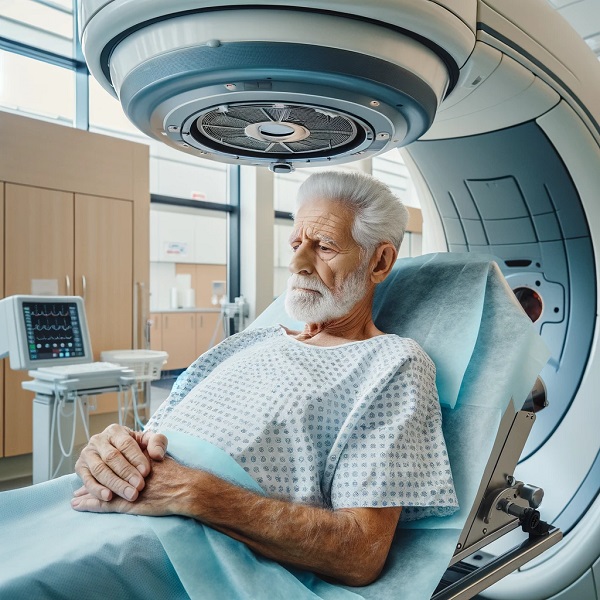
Understanding Liver Cancer
Kay
- 0
What is Liver Cancer?
Liver cancer is an abnormal growth of cells that start in the liver, an essential organ of detoxification located in the right upper part of your belly. It helps to break down and digest food, as well as store nutrients. However, sometimes things go awry and cancerous cells start to multiply in your liver.
Types of Liver Cancer
Hepatocellular Carcinoma (HCC)
Hepatocellular Carcinoma (HCC) is the commonest type of liver cancer. It arises from the principal type of liver cell (hepatocyte) and can spread to other parts of the body if left untreated.
Intrahepatic Cholangiocarcinoma
This type arises in the bile ducts in the liver. It’s much less common than HCC but a type of liver cancer that we still need to pay attention to.
Angiosarcoma and Hemangiosarcoma
These unusual types of liver cancer arise from blood vessels in the liver; they tend to grow rapidly and are often detected at a later stage.
Liver Cancer vs. Liver Metastasis
The terms primary liver cancer and liver metastasis are easy to confuse, but they have very different meanings. In primary liver cancer, the tumor started in the liver. In liver metastasis, the cancer began somewhere else and spread to the liver.
Causes and Risk Factors
Chronic Viral Hepatitis
Chronic infections with hepatitis B or C viruses are responsible for three-quarters of liver cancers. In these situations, the chronic inflammation caused by the viruses increases the risk for cancer over time.
Cirrhosis
Cirrhosis, which is a massive scarring of the liver, also increases the risk of liver cancer, it is a common consequence of chronic alcohol ingestion, but also results from certain diseases.
Alcohol and Tobacco Use
Drinking alcohol and smoking pose major risks. Both activities damage the liver’s cells, which then cause inflammation and scarring. Scars form tumors.
Obesity and Diabetes
The risk factors increase too, because being overweight or diabetic promote fatty liver disease, which can itself progress to cirrhosis and then to cancer.
Symptoms of Liver Cancer
Early Symptoms
Early symptoms includes unexplained weight loss, loss of appetite, upper abdominal pain, fatigue.
Advanced Symptoms
Advance symptoms includes abdominal swelling, jaundice (yellowing of the eyes and skin), enlarged liver.
Diagnosis and Staging
Diagnostic Tests
Blood Tests
Blood tests to check liver function and detect substances including alpha-fetoprotein (AFP) that could indicate liver cancer.
Imaging Tests
Imaging techniques such as ultrasound, computed tomography (CT) and magnetic resonance imaging (MRI) can create an image of the liver and help determine whether there is a problem or not.
Biopsy
A biopsy involves taking a small sample of liver cells and viewing them under a microscope to check for the presence of cancer cells.
Staging of Liver Cancer
Staging describes how far cancer has spread and is used to decide on the treatment options available, as well as gauge the likely outcome of a person’s condition. It’s measured from our basic stages (I for localized) right through to stage IV (advanced).
Treatment Options
Surgery
Partial Hepatectomy
In this procedure, the surgeon removes the part of the liver affected by cancer. The patient is kept alive by putting him on a machine for a few hours . This can be done if the tumor is small and there is enough liver function remaining.
Liver Transplant
A liver transplant consists in replacing a diseased liver with a healthy donated one, when possible. In these cases, the procedure usually takes place when cancer has not spread to other organs.
Ablation and Embolization
Radiofrequency Ablation (RFA)
The heat from RFA eliminates cancer cells. It is a treatment that is particularly well-suited to small tumors.
Transarterial Chemoembolization (TACE)
The treatment, which delivers an anti-cancer drug to the tumor in the liver through the arteries, starves it of its blood supply and kills cancer cells.
Radiation Therapy
Radiation therapy uses highly charged rays that can be directed into a tumor in order to destroy the cancer cells. It’s sometimes used when a cancer cannot be removed surgically, and sometimes it’s used as a precursor to surgery, to shrink the tumor before it is ultimately removed.
Targeted Therapy
Targeted therapy uses drugs that work by attacking cancer itself without damaging normal cells. It works for certain types of liver cancer.
Immunotherapy
Immunotherapy treatments improve the activity of immune cells to fight cancer. It is a newer treatment that has shown a lot of promise for a number of different cancers, including liver cancer.
Coping with Liver Cancer
Emotional Support
Fighting against cancer is very emotional. Support group, counselling and therapy are helpful in solving those problems faced by cancer patients and their families.
Nutritional Support
It’s really important to get the nutrition right while you’re on treatment, because that helps with your recovery afterwards. You can go to a dietitian, who can help guide you to a diet that will keep you strong – a nice wholesome nourishing diet is a good thing.
Palliative Care
Palliative care, also known as supportive care or comfort care, is an approach that improves the quality of life of patients and their families who are facing problems associated with life-threatening illness. Palliative care provides relief from pain and other troubling symptoms, while addressing psychological, social and spiritual problems.
Prevention and Screening
Lifestyle Changes
Cutting down on alcohol, quitting smoking, keeping at a healthy weight, and controlling diabetes all lower your risk of liver cancer.
Regular Screening
For those at high risk, you can get regular screening if it is diagnosed early, so treatment can be more effective, your physician may order periodic imaging (an ultrasound of the liver or body CT) or a blood test.
Conclusion
Liver cancer is a horrible disease that manifests in several forms with many different risk factors. Knowing the symptoms, the different diagnosis, and the treatment options for Liver cancer makes it easier to treat and manage. With early detection, lifestyle changes, and prompt and regular checkups from our doctors, the likelihood of survival increases.
FAQs
What are the main causes of liver cancer?
The major etiologies are chronic hepatitis B or C infection, cirrhosis, heavy alcohol use, tobacco smoking, obesity and diabetes.
How is liver cancer diagnosed?
Liver cancer is diagnosed using blood tests, imaging (ultrasound, CT, MRI) and biopsy.
Can liver cancer be cured?
Absolutely, but when liver cancer is diagnosed early it can be curative, depending on the treatment option like surgery, liver transplant, etc.
What are the early signs of liver cancer?
Some of the first-ever symptoms are inexplicable weight loss, lack of appetite, upper belly pain, fatigue, and sometimes jaundice.
How can I reduce my risk of liver cancer?
But you can lower your risk by limiting your alcohol intake, quitting smoking, keeping your weight under control, controlling diabetes, and getting the hepatitis B vaccine.
LG K40 Samsung Note 20 Samsung Galaxy Z Fold2 iPhone 11 iPhone 12 Pro Max Samsung Galaxy S21 Samsung Galaxy S21 LG Velvet LG Velvet


